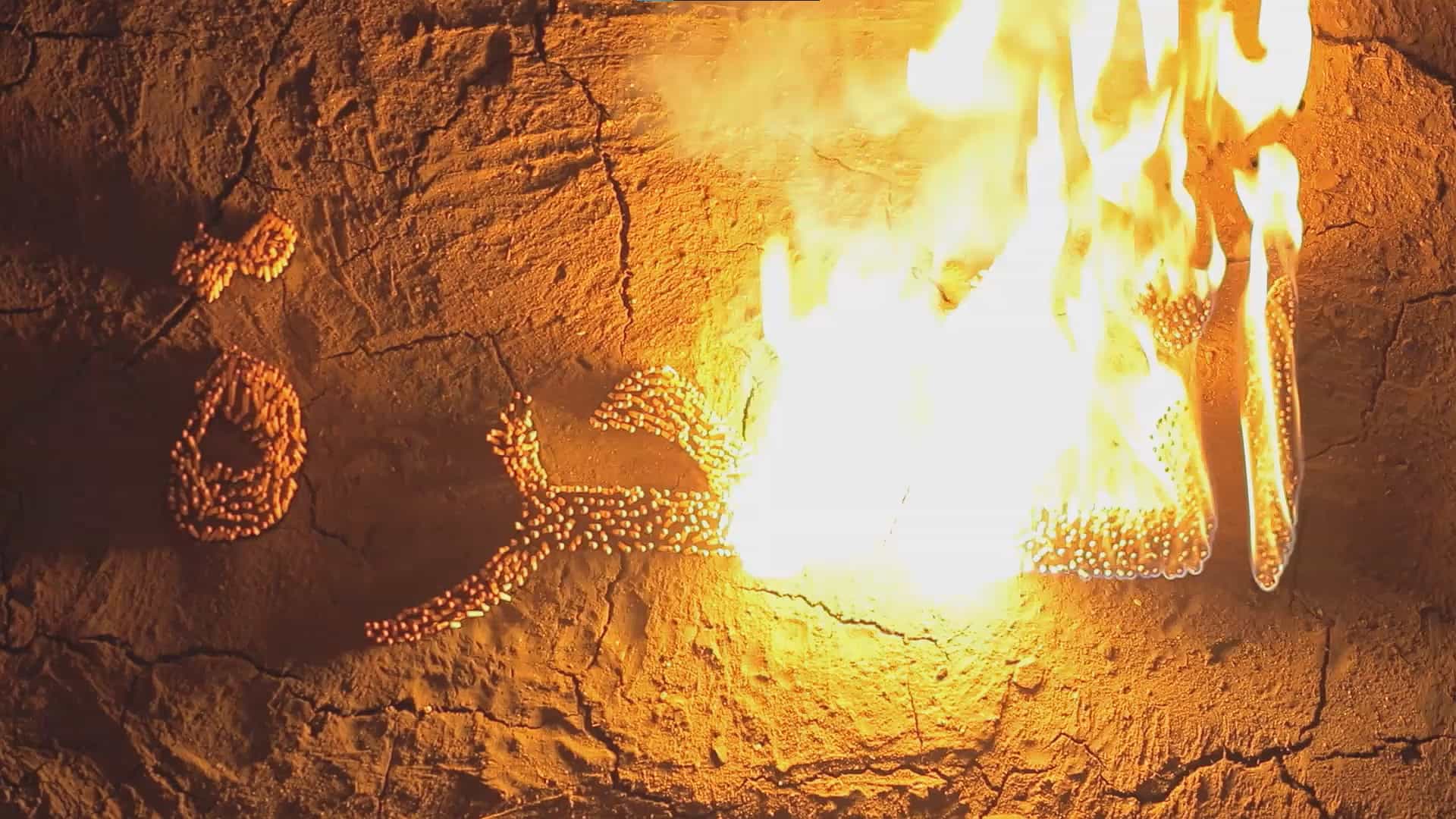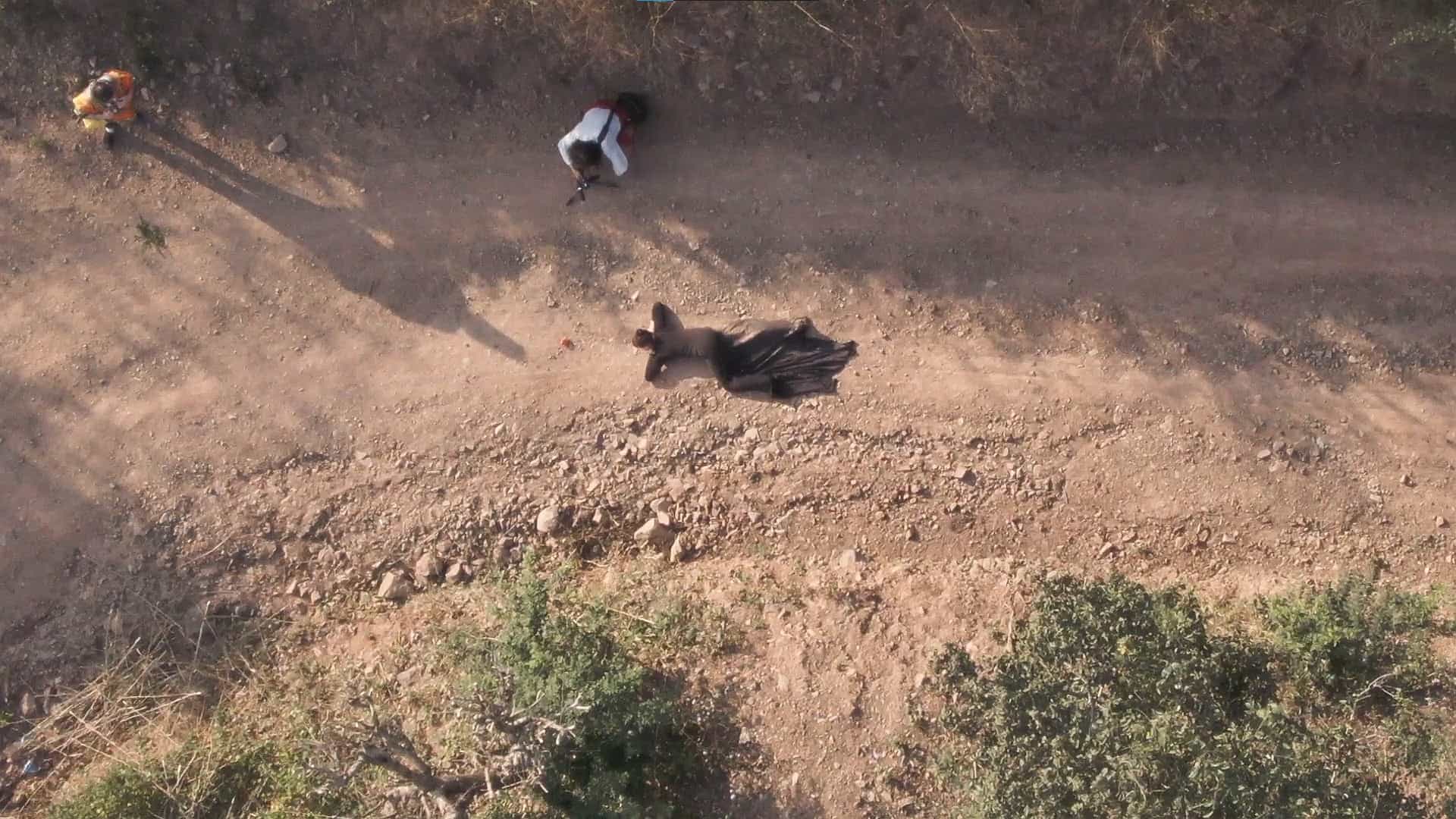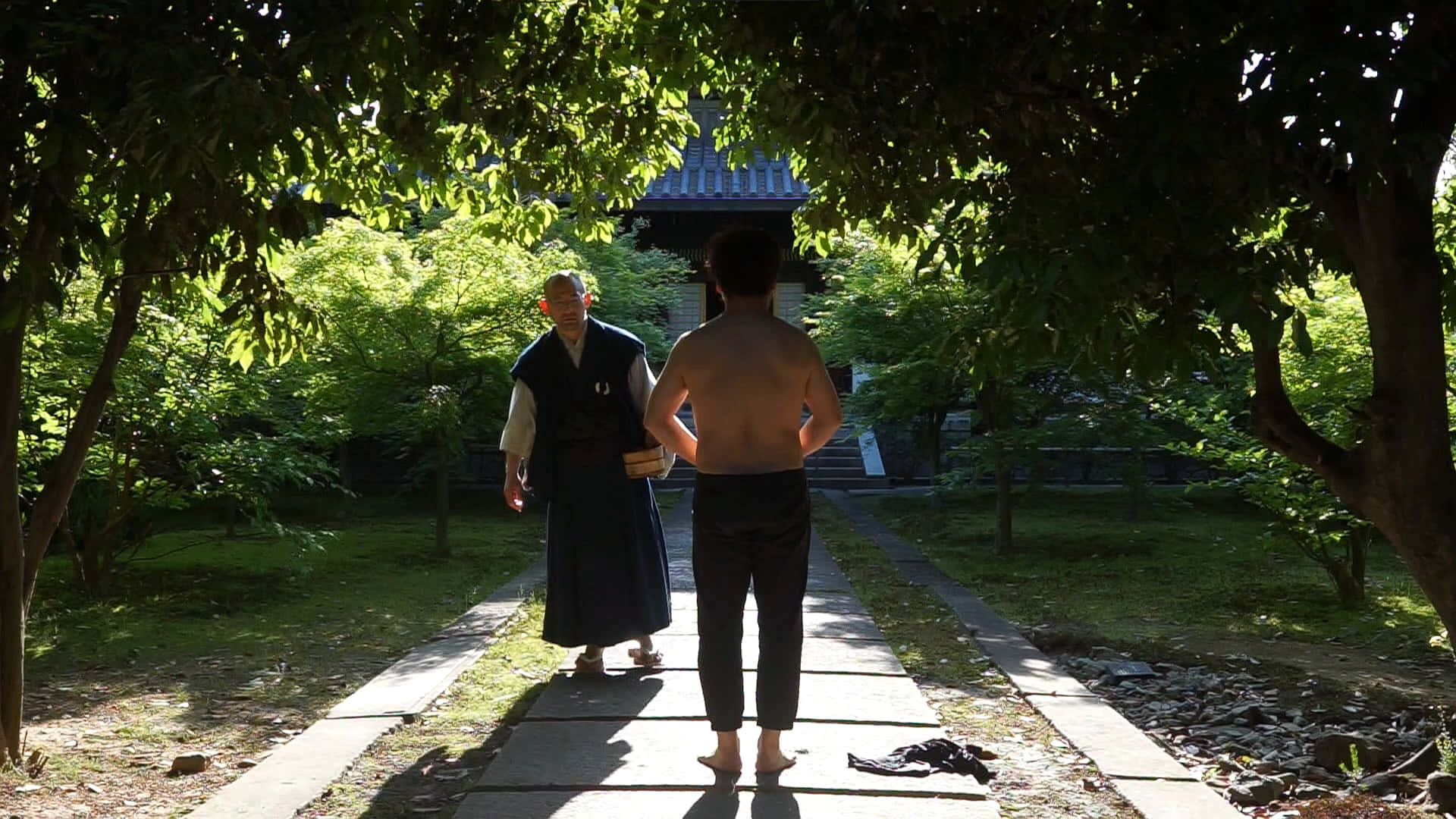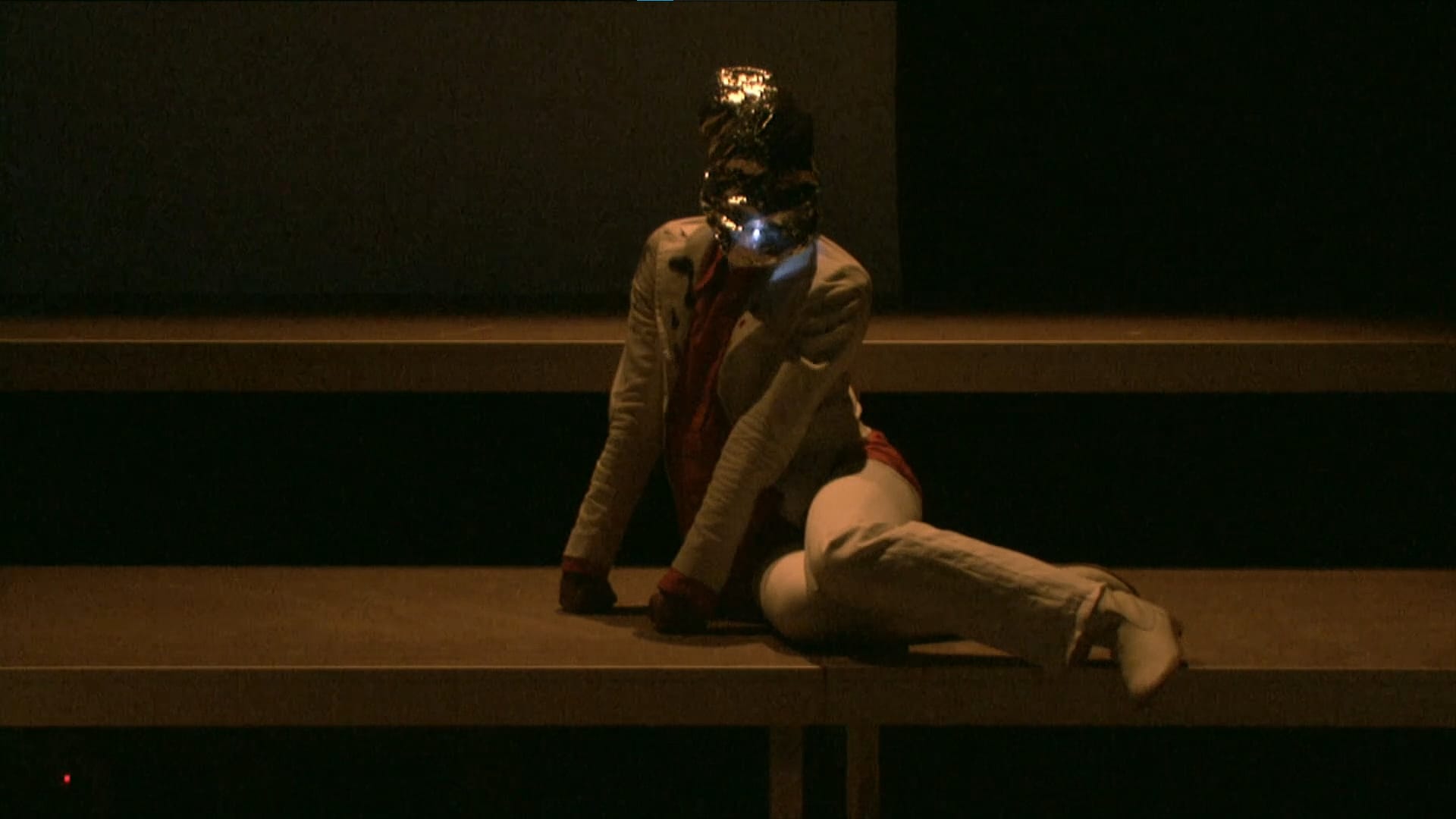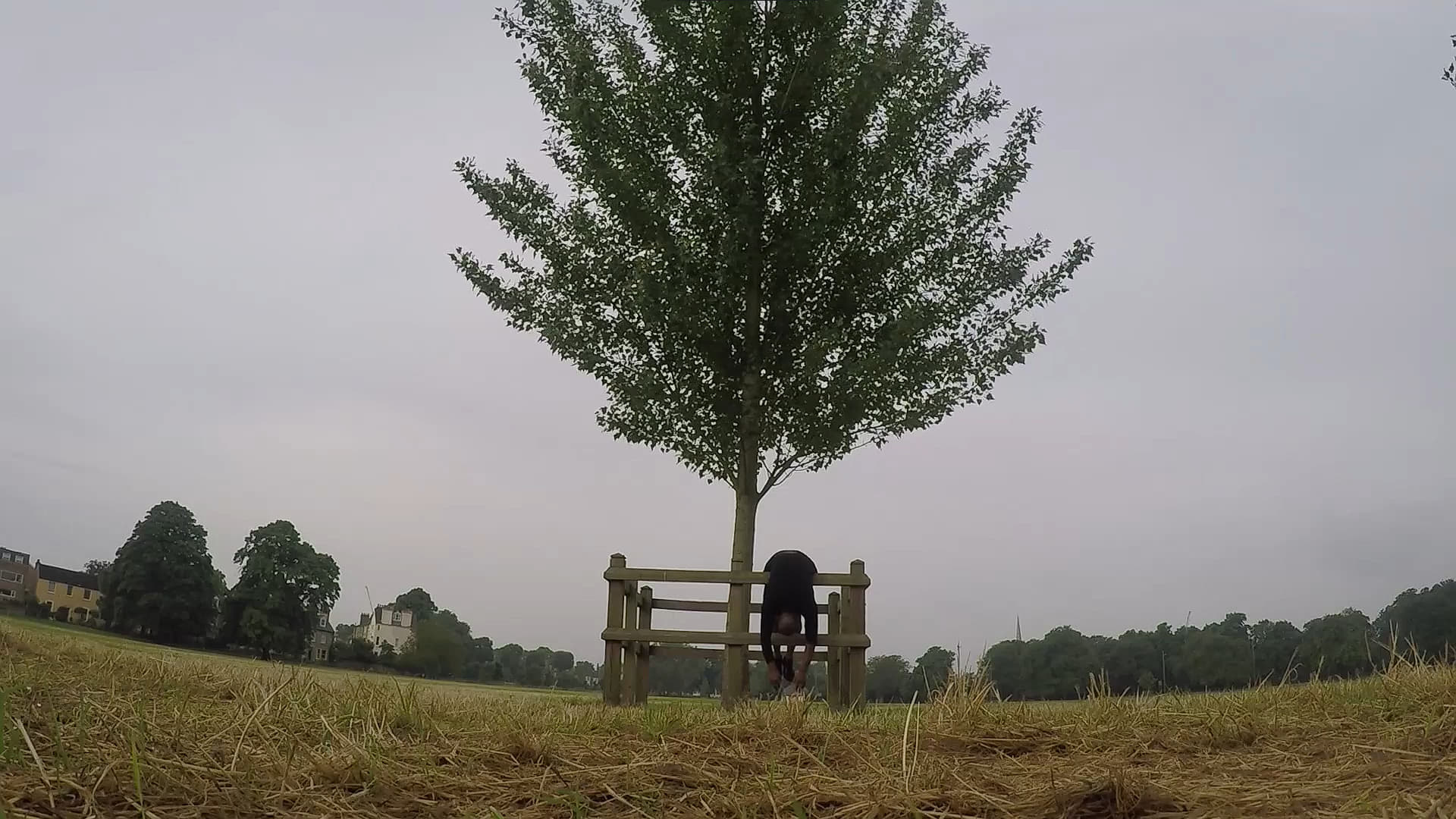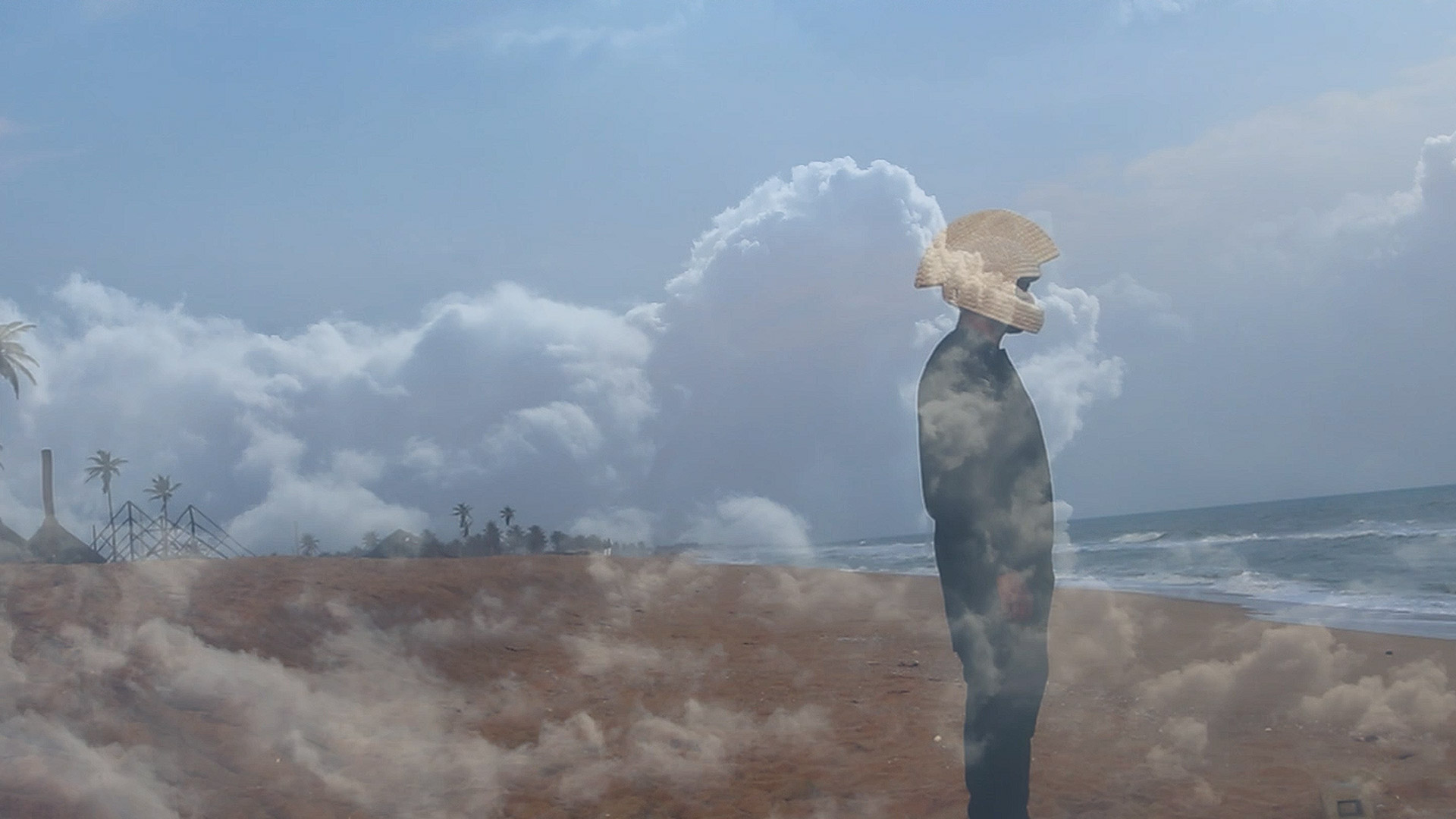
NEVER CROSS THE SAME RIVER TWICE
International Contemporary Film Performance
NEVER CROSS THE SAME RIVER TWICE
International Contemporary Film Performance
© Transmutations, Emo de Medeiros, 2017
Info
Title
NEVER CROSS THE SAME RIVER TWICE
International Contemporary Film Performance
Chapter One: Semiotics of Subjectivity
Curated by
Kisito Assangni
Artists
Lazara Rosell Albear & Sammy Baloji, Emo de Medeiros, Gilivanka Kedzior, Moataz Nasr, Daisuke Takeya, Harold Offeh
Location
HANGAR ONLINE
Opening
March 10th – 7 pm
Dates
March 10th – 7 pm | April 10th
Talk
To be announced
Videos
Bare Faced – Sammy Baloji (DR Congo) & Lazara Rosell Albear (Cuba), 2015
Transmutations – Emo de Medeiros (Benin), 2017
All Along The Way – Gilivanka Kedzior (France), 2018
The Mountain – Moataz Nasr (Egypt), 2016
Untitled Passing – Daisuke Takeya (Japan), 2017
Two Positions – Harold Offeh (Ghana/UK), 2016
Synopsis
The international exhibition NEVER CROSS THE SAME RIVER TWICE underlines the transnational dialogues on negotiating identities and everyday life through performance gestures that wish to cross borders on experience and subjectivity.
The title derives from the ancient Greek philosopher Heraclitus’ quote: “No man ever steps in the same river twice, for it’s not the same man”. People are looking to make deep changes in our environmental and energy systems, our economic, representative and regulatory systems.
This research project is a time shifting narrative providing a space for reflection in the age of constant accessibility. The participating artists tackle subjects that challenge us to reflect on the changing world in which we live.
Many of the works are a critical “intervention”: they are sites of visual contestation; cinematic aesthetics, with narratives that re-member; and they decolonize both the mind and the imagination.
The collective ranges from films that feature those who were colonized and subjugated, to films that work as forms of activism; and what Walter Mignolo terms “epistemic disobedience”.
Kisito Assangni is a Togolese-French curator, consultant, and farmer who studied museology at Ecole du Louvre in Paris. Currently living between UK, France and Togo, his research focuses primarily on psychogeography and the cultural impact of globalization. He investigates the modes of cultural production that combine theory and practice. He inherently aims at going beyond the usual relations between artist, curator, institution, audience, and artwork in order to engage audiences in encounters with art that are unexpected, transformative, and fun.
Assangni is heavily involved in video, performance, and experimental sound.
His discursive public programs and exhibitions have been shown internationally, including the Venice Biennale, ZKM Museum, Karlsruhe; Whitechapel Gallery, London; Centre of Contemporary Art, Glasgow; Museum of Contemporary Art, Sydney; Malmo Konsthall, Sweden; Torrance Art Museum, Los Angeles; Es Baluard Museum of Art, Palma, Spain; National Centre for Contemporary Arts, Moscow; Marrakech Biennale among others.
Assangni has participated in talks, seminars, and symposia at numerous institutions such as the British Museum, London; Palais de Tokyo, Paris; Ben Uri Museum, London; Pori Art Museum, Finland; Kunsthall 3.14, Bergen (Norway); Bamako Encounters Photography Biennial, Mali; Sala Rekalde Foundation, Bilbao; COP17 Summit, South Africa; Depart Foundation, Malibu (USA); Sint-Lukas University, Brussels; Motorenhalle Centre of Contemporary Art, Dresden (Germany); Kunsthalle São Paulo, Brazil; Museo d’Arte Contemporanea Ticino, Switzerland.
He is a contributing editor at ArtDependence Magazine.
Assangni is the founder of TIME is Love Screening – International video art program and curatorial advisor to Latrobe Regional Gallery in Victoria, Australia.
Scientific coordination and organized by Mónica de Miranda
This project is part of the project Post-Archive: Politics of Memory, Place and Identity, CITCOM-CEC-FLUL
This project was produced with national funding from the FCT-Fundação para a Ciência e a Tecnologia, I.P. under the project UIDB/00509/2020.

